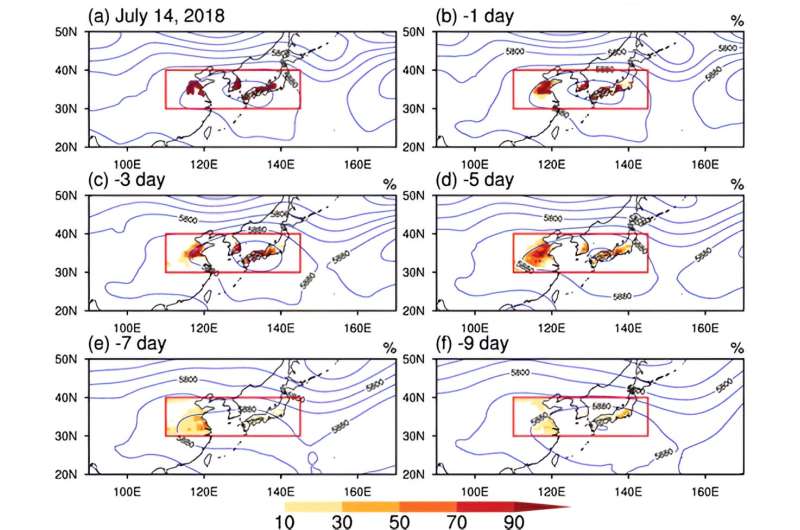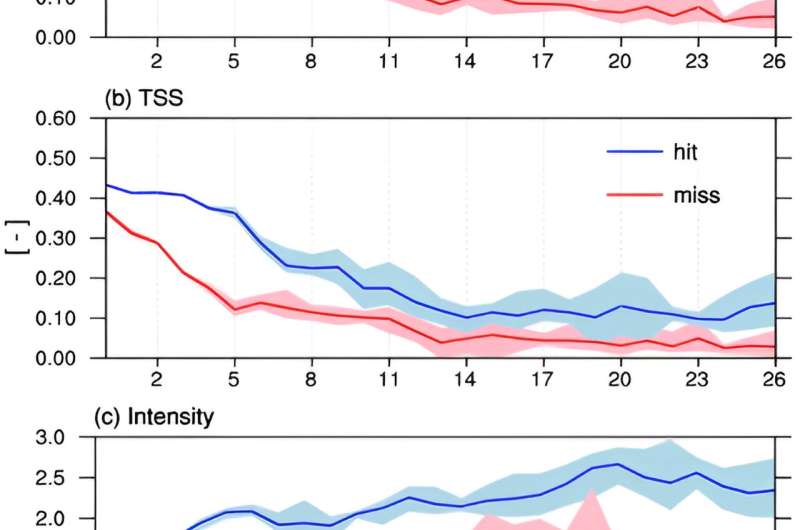Advancements in forecasting summer heat waves ten days in advance

Researchers have unveiled a system capable of predicting the likelihood of heat wave occurrences in Korea ten days in advance. This technology is expected to facilitate early preparations for heat waves, particularly given the anticipated yearly rise in record-breaking temperatures.
Led by Professor Myong-In Lee in the Department of Civil Urban Earth and Environmental Engineering at UNIST, the research team used the Korea Meteorological Administration's Ensemble Prediction System for Global (EPSG) to provide an extended window for advanced warnings.
The new system has displayed superior performance compared to existing forecasting techniques, particularly within Korea when compared to other East Asian regions. Throughout the severe heat wave of 2018, the system accurately forecasted the start and end of the heat wave from a week prior, illustrating its practical efficacy.
The team is presently working on the development of a forecasting model equipped to predict heat waves a fortnight in advance. This updated system analyzes the land–atmosphere interactions to enhance heat wave prediction accuracy.
By determining rapid changes in soil moisture and maximum ground temperature within the climate prediction system, the team emphasizes the importance of improving the accuracy of soil moisture prediction.

Professor Lee emphasized, "This exploration greatly enhances the disaster prediction capabilities of Korea's meteorological system."
Sunlae Tak, the first author of two publications stemming from the study, stated, "The outcomes of our investigation will furnish the public with precise heat wave intelligence during the summer season, thereby ultimately mitigating potential damages."
The research findings have been consecutively published in Weather and Climate Extremes on April 4 and May 24, 2024. This study was executed as part of the Heat Wave Research Center initiative.
More information: Sunlae Tak et al, The role of soil moisture-temperature coupling for the 2018 Northern European heatwave in a subseasonal forecast, Weather and Climate Extremes (2024).
Sunlae Tak et al, Probabilistic medium-range forecasts of extreme heat events over East Asia based on a global ensemble forecasting system, Weather and Climate Extremes (2024).





















